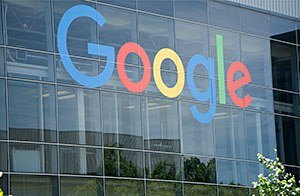The European Commission (EC) has today (27 June) fined Google €2.4bn for abuse of dominance as a search engine, illegally promoting its own comparison shopping service above others in breach of antitrust law, creating expectations of a raft of damages claims based on the finding.
The EC told the global company to end its illegal conduct within 90 days or face penalties of up to 5% of Google’s parent company Alphabet’s average daily worldwide turnover.
Cleary Gottlieb Steen & Hamilton competition partner Maurits Dolmans and Brussels partners Thomas Graf and Robbert Snelders acted for Google. Julia Holz co-ordinated Google’s in-house defence.
Clifford Chance partner Thomas Vinje represented 15-company consortium Fairsearch which submitted evidence in relation to rival shopping services in the case, including as Foundem, TripAdvisor, Expedia and Trivago.
Covington & Burling’s Miranda Cole advised Expedia, TripAdvisor and Trivago.
Today, Fairsearch stated that the decision ‘sets a powerful precedent’ that the EC can use to restore competition on other specialised online search services, such as those for travel.
Competition chief Margrethe Vestager said that Google’s strategy for its comparison shopping service had not just attracted customers ‘by making its product better’ than rivals but instead had ‘abused its market dominance as a search engine by promoting its own comparison shopping service in its search results, and demoting those of competitors.’
Google’s activity was ‘illegal under EU antitrust rules. It denied other companies the chance to compete on the merits and to innovate.’ It also ‘denied European consumers a genuine choice of services and the full benefits of innovation,’ she said.
The EC also said that as a result of its practices, Google’s comparison shopping service is far more visible to consumers in Google’s search results than rivals’ comparison shopping services, which are pushed down and less visible.
A Google spokesperson said today that the company will consider appealing the decision. It said that its shopping comparison service connects ‘users with thousands of advertisers, large and small, in ways that are useful for both.’
While the EC could have fined Google up to 10% of its annual global turnover, Peter Willis, EU competition co-head at Bird & Bird described the case as ‘significant’ partly for being largest EC fine to date on a single company.
‘It’s likely to be portrayed as another instance of the Commission bashing US tech companies’, but the EC’s position ‘will be that it has fined Google not because it is a large US tech company, but because it has abused its dominant market position by squeezing out its rivals in related markets’, he added.
There is likely to be ‘a series of damages claims brought by the rivals that were excluded from the market by Google’s conduct. They will be able to use the decision as the basis for a damages claim before the national courts.’
The EC’s decision will ‘establish Google’s liability and a damages claim will in principle be limited to establishing the loss,’ Willis added.
In 2004, the EC fined €497m Microsoft for illegally leveraging its dominant position.
Google’s search engine provides search results to consumers who pay for the service with their data, according to the EC. Nearly all of Google’s revenues come from advertising, many shown on a consumer search.
The EC said that Google’s search algorithms had ‘systematically’ promoted its own comparison shopping service to consumers at the top of the page on a Google search while demoting rival comparison shopping services.
The decision followed a seven year investigation into Google’s online shopping comparison service.
Foundem originally accused Google in 2009 of lowering its ranking on the search engine in favour of its own companies. In July 2016, the EC released a statement of objections that Google abused its dominant market position by ‘systematically favouring its comparison shopping service in its search result pages.’
Google later sought to defend its position on the basis that the accusations and evidence represented just ‘the interests of a small number of websites.’
Kent Walker, general counsel at Google, has blogged that the EC’s case ‘doesn’t fit the reality of how most people shop online.’ Walker argued that rather than looking for products on a search engine, consumers reach merchant websites in many different ways such as social media websites and online advertisements.
There are currently two separate investigations pending into Google, one regarding its use of the Android operating system and another into its AdSense service.
tom.baker@legalease.co.uk and miriam.kenner@legalbusiness.co.uk














